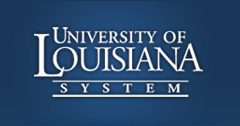Event Title
Isolation and Analysis of an Oleocanthal-Rich Fraction from Extra-Virgin Olive Oil and its Standardization as a New Dietary-Based c-Met Inhibitor for the Control of Metastatic Breast Malignancies
Faculty Mentor
Khalid El Sayed
Location
Orchestra Room, Angelle Hall
Start Date
12-4-2014 10:45 AM
End Date
12-4-2014 11:45 AM
Description
Extra-virgin olive oil (EVOO) is a major component of the Mediterranean diet. Mediterranean populations have reduced risk for diseases including some malignancies. (-)-Oleocanthal is a naturally-occurring secoiridoid from EVOO. Oleocanthalinhibited activation of c-Met kinase, an important aggressive malignancy marker. This study aims to extract EVOO-derived oleocanthal-rich fraction and quantify its oleocanthal content. It is important to discover simple, sensitive, and reproducible methods to standardize oleocanthal concentration for its future use with chemotherapy or for chemoprevention in people at high risk of cancer. Standardized oleocanthal-rich fractions may become future dietary supplements for use to control metastatic breast cancer.
Isolation and Analysis of an Oleocanthal-Rich Fraction from Extra-Virgin Olive Oil and its Standardization as a New Dietary-Based c-Met Inhibitor for the Control of Metastatic Breast Malignancies
Orchestra Room, Angelle Hall
Extra-virgin olive oil (EVOO) is a major component of the Mediterranean diet. Mediterranean populations have reduced risk for diseases including some malignancies. (-)-Oleocanthal is a naturally-occurring secoiridoid from EVOO. Oleocanthalinhibited activation of c-Met kinase, an important aggressive malignancy marker. This study aims to extract EVOO-derived oleocanthal-rich fraction and quantify its oleocanthal content. It is important to discover simple, sensitive, and reproducible methods to standardize oleocanthal concentration for its future use with chemotherapy or for chemoprevention in people at high risk of cancer. Standardized oleocanthal-rich fractions may become future dietary supplements for use to control metastatic breast cancer.
